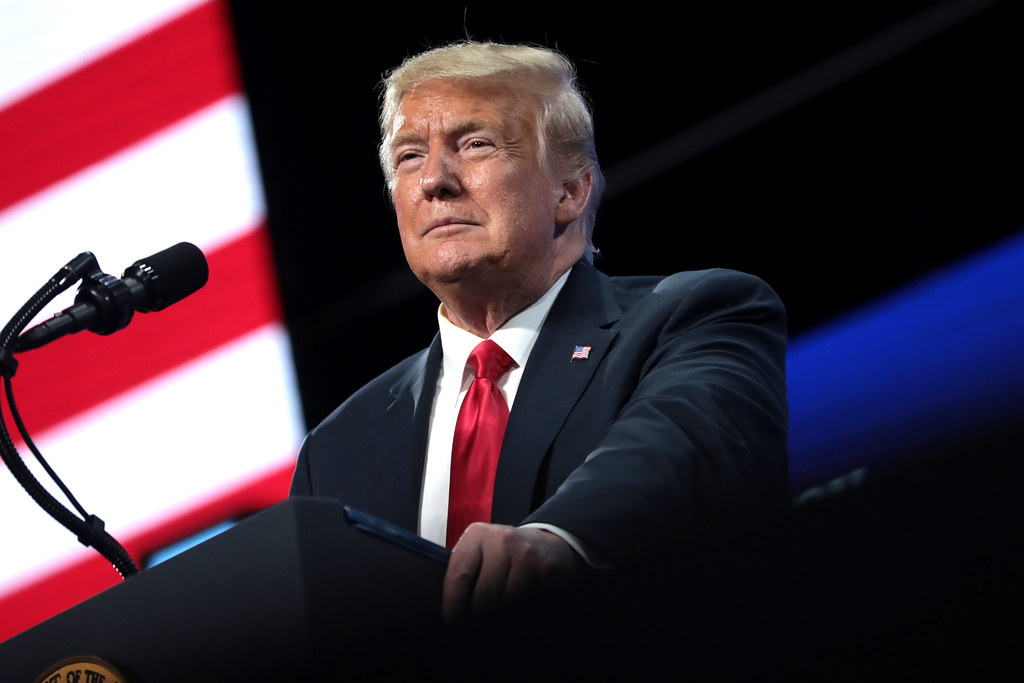Resolve Syria conflict without U.S. intervention
October 13, 2013
In a recent turn of events, allegations of the Syrian government using chemical weapons against its own people arose in late August. The Syrian civil war, a bloody insurgency over the resignation of President Bashar al-Assad and the end of Ba’ath Party rule, has raged on since March of 2011. Despite two years of civil war, there has been relatively little international involvement by the United States and other European countries. However, recent developments of the chemical weaponry allegations, backed by video footage and satellite imagery, have attracted the attention of the international community. The Syrian government is in very hot water now as international superpowers such as the United States are pressing for immediate action against the Assad regime.
President Bashar al-Assad repeatedly denies the possession or use of chemical weapons. Ignoring the evidence gathered by multiple intelligence agencies, he asserts that the regime never has used chemical agents, and even goes so far to slyly suggest that the Syrian rebels were using them. Counter evidence of Assad’s pleas of innocence comes from the outcry of opposition groups and civilians living in a war-ridden country.
Following one of the supposed chemical bombings in a town called Muadhamiya, off the outskirts of Damascus, dozens of videos were uploaded showing the disturbing aftermath of the attack. In the videos, a great number of adults and children suffer from some sort of internal injury-the victims’ symptoms include shortness of breath, disorientation, nausea, vomiting, eventual loss of consciousness and a plethora of additional ailments. The victims in the videos did not show signs of external or physical injury, but adhered to the description of people who are exposed to a corrosive chemical. It was later determined through environmental and human samples that Sarin gas, a nerve agent, was present. The Médecins Sans Frontières, an international medical charity, stated that 3,600 patients had “neurotoxic symptoms,” and 355 had died. From this single attack, the death toll is estimated to be at least 1,400. While Assad may refute the possession of chemical weapons, all fingers point towards the Syrian government for the deadly Muadhamiya attack.
Now that clear, undeniable evidence of the chemical attacks has been leaked to the international community, what will be the course of action? Influential countries including France, Britain, Germany, Russia, and the United States differ on the approach. The United States fabricated multiple responses to the growing crisis. One response, strongly advocated by President Barack Obama, involves foreign military intervention in the civil war. The purpose of the strike, as the Obama Administration claims, is not to promote full-scale military intervention in Syria, but to deter the use of chemical weapons. President Obama refers to reinforcement of the “international norms,” the utter rejection of chemical weapons, which are classified as “weapons of mass destruction.”
Yet, the Obama Administration received caustic opposition to the use of military force from the international community. The British Parliament voted no to a strike while Russia, particularly Prime Minister Vladimir Putin, strongly opposes any type of military intervention in Syria. Stubbornly enough, Putin absolutely repudiates military force for the reasons of a larger war and an increase in terrorism, as stated in his Op-Ed published in The New York Times. Yet, analysts suggest the underlying motives for Putin’s defense of the Assad regime is diplomatically motivated. Sure, Russia has a strategic base or two stationed in Syria and Russia certainly has drawn in a staggering one-billion dollars from the weaponry trades. But, professionals have other theories as to Russia’s motives.
Moscow-based journalist Konstantin von Eggert states that, “Putin perceives the desire by the West to kick out those the West doesn’t like. Essentially, what Russia wants to tell the world is that no one, including the U.N., is going to decide who is going to run which country.”
Putin advocates the right of a country to run itself, thus explaining his reluctance to interfere in Syria’s domestic battles. The Russian Prime Minister disapproves of Western ambitions to control the governance of entire countries. The Iraqi and Afghan War were of such examples, in which allied forces disbanded the Ba’ath party and overthrew the Taliban government respectively. Putin needs to uphold his principles; his own reputation wavers on the ability to adhere firmly to his policies. He cannot afford to be called a hypocrite if he is to keep Russia respected or at least noticed on the international stage.
While at first, the use of military force gathered momentum despite the disapproval of Britain and Russia (on a lighter note, France did however, support the U.S. in the pursuit of a strike), all attention has been drawn to Russia’s proposal of the accumulation of Syria’s stockpile of chemicals. Given that the resolution has already been passed, it requires that Syria to provide a very detailed list of the country’s chemical stockpiles within a week, allow inspectors by November to begin neutralization of the arsenals, and mandated the removal and destruction of all weapons by the middle of next year.
Yet, despite Syria’s compliance with disclosing a list of their chemical weapons, United States officials have speculations about the regime buying time through the diplomacy. Removing massive amounts of chemical agents within a year is not a very easy thing to do. The Syrian government would need to allot massive periods of time to appease international powers – all the while fighting a fierce and bloody civil war.
Who’s to say that the regime reluctantly accepted the deal so the worldly powers will stop pestering them so they can fight the war? Who’s to say that Assad will actually peacefully hand over its stockpile of weaponry – which crudely gives them an edge over the rebels? Quite a lot is at risk in this resolution. The rebels still need to fend off an oppressive government with very limited aid for an indeterminable number of years. If the Syrian government decides to defy the agreement, then a full year’s worth of time would be wasted. The regime would suffer little repercussions for the thousands of lives they destroyed. And to top it all off, if the resolution does somehow manage to work smoothly, it is a win-lose situation for the United States. While the nation may have prevented another potential war, the United States would suffer in diplomatic strength. Instead of paving the way to universal democracy and fabricating peaceful resolutions to world conflicts, Russia, a country that does not exactly zealously agree with the Western liberal mindset, solved a growing crisis the U.S was expected to resolve. The world would glorify Putin as a peace-maker, a champion in international affairs, which is a troubling speculation in the minds of American politicians since the United States holds a reputation as a powerful arbitrator in world affairs. Russia, a country whose social and political values differs from those of the United States, would be cutting into nation’s sphere of influence – possibly obstructing the objectives of the United States international missions.
Continuing off the conjecture of the Assad regime’s refusal of confiscation of its chemical stockpile, what would the United States do? Assuming that the Syrian government successfully stalls for the remainder of the deal’s timeframe, the United States will have even less time to react to the ongoing crisis. The Obama Administration states that the threat of military force will not be taken off the table anytime soon, and the unwillingness of the Syrian government to cooperate will re-initiate talks of a military strike.
While the message that the United States and a rather large part of the international community condemns chemical would get through, the United States would be engaged in yet another bloody war. Considering there has been significant United States involvement in the Middle East (e.g. Iraqi war, Afghan war), there must be anti-American sentiment amongst the countries in the region. How would further United States intervention affect the nation’s relationship to those countries? It can’t be certain, but perhaps even more anti-American sentiment might brew. And, furthermore, what about Russia’s resolution? While it is probably the most peaceful option on the table, there are too many variables in play in this move. Is Assad to be trusted with his word? Is he really going to surrender his stockpile peacefully? Will United States diplomatic strength weaken as Putin is acclaimed as a peace-maker? No matter what angle of the approach, the U.S. will always face some sort of dilemma when dealing with Syria.
While politicians considered the confiscation as one of the most logical and effective resolutions, an alternative suggestion is to have the United States increase its aid to the Syrian rebels. Considering the U.S. holds a rather favorable bias towards the rebel coalition, economic and financial assistance to the opposition would endorse more democratic values in terms of their cause. The backing of rebels would give them significant leverage over the regime (or at least neutralize the benefits of the Russian arms trade). As for the chemical weapons (if the Syrian government does not surrender the stockpiles), the U.S should deploy expert disarmament teams to teach the rebels how to locate, capture, neutralize, and destroy the chemical agents on their own. This particular stratagem would elude direct military intervention while removing the chemical weapons without too much diplomatic controversy. The United States and other countries have already been supplying the rebels with supplies. The quantity of supplies the rebels received, however, was not significant enough to produce a feasible effect in their battles. Russia provided military arms to the Syrian government to aid in their pursuit of retaining power. By doing so, Russia already intervened in the domestic affairs of Syria, despite Putin’s vehement principle of letting a country run itself.
The United States therefore has rationale to support the rebel coalitions. This approach would minimize potential criticism of the United States commanding ambition while removing weapons that endanger thousands of innocent lives.
The Assad regime is responsible regardless for the death of hundreds of its citizens using chemical weapons (and there’s many more deaths counting the civil war in its entirety). Such a profound massacre of an undeterminable number of innocent civilians should result in more severe consequences than the simple confiscation or destruction of the regime’s chemical stockpile. While the priority is removing Syria’s access to chemical weapons, the other factors such as diplomatic relations and assistance to the rebels cannot be neglected. Although the resolution to this villainous crisis may differ in various degrees of action, one thing is certain: weapons of mass destruction are the evils of the world, and every international effort to safeguard the innocents can be bitterly difficult.







